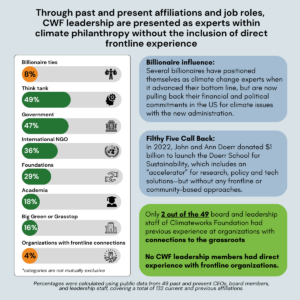While the recent midterm elections brought disappointment to many, several citizen-proposed initiatives and propositions made significant headway on a range of issues. One of these was Proposition 47 in California. Heralded by criminal justice advocates as a model for reform, Prop 47 reduces the sentencing penalties for drug possession and a handful of simple theft charges when less than $950 is involved. In effect, it “de-felonizes” offenses commonly associated with poverty and addiction.
In 2011, the Supreme Court finally recognized what criminal justice system reform advocates had said repeatedly in calls for reform: Because of long-standing issues at several levels of law enforcement, California’s prison system was dangerously, unconstitutionally overcrowded. The bench ordered the state to reduce the population of its corrections system, providing significant support for long-standing campaigns for just criminal sentencing reform.
California’s Three Strikes Law and other regressive sentencing measures are largely to blame for the overcrowding, experts say. The 1994 law has led to what Justice Anthony Kennedy called “needless suffering and death” in California’s prisons, where many third-strike inmates are serving life sentences for nonviolent offenses. Today, California has the nation’s second-largest incarcerated population (over 216,000 incarcerated or a rate of 351 incarcerated persons per 100,000 in general population).
Hard work on the part of dozens of diverse advocacy groups supported by substantial foundation dollars, about $14 million, led to sweeping sentencing reform passed on the statewide ballot. Proponents of Prop 47 hope a measure in the initiative that earmarks savings as a result of the changes for addiction counseling, mental health treatment and job training will amount to a profound and just shift in priorities for the state.
The success of the campaign and the ripple effect it could have on public health and poverty outcomes is a positive signal to foundations: This is not only a model for criminal justice reform, but also for philanthropic engagement in a large-scale campaign for social justice. Six major foundations – the Rosenberg Foundation, the Open Society Foundations, the Ford Foundation, The California Endowment, the Atlantic Philanthropies and Tides Foundation – spent two years injecting money into a constellation of nonprofits that flexed their muscle on many fronts to make Proposition 47 a reality. The foundations supported the work of faith-based groups, civil rights advocates such as the National Council of La Raza and the NAACP, progressive policy think tanks, several chapters of the American Civil Liberties Union, criminal justice reform groups, health advocacy nonprofits and gender justice groups, among others. The clear commitment on the part of these powerful institutions to an intersectional approach to reforming a broken, oppressive system offers a critical lesson for social justice foundations – that funding and advocacy on behalf of underserved communities can lead to positive structural changes that benefit us all in the long term.
The Proposition 47 campaign is in line with NCRP’s mission of promoting philanthropy that serves the public good, is responsive to people and communities with the least wealth and opportunity, and is held accountable to the highest standards of integrity and openness. It is also in keeping with findings from NCRP’s Grantmaking for Community Impact Project, which found an overall return of $115 for each dollar that grantmaking institutions and other donors invested in grassroots work. Sentencing reform on this scale will undoubtedly improve the lives of underserved communities such as people of color and lower-income populations, groups disproportionally affected by mass incarceration and broken drug enforcement and sentencing policies. The strategy employed here by funders of empowering diverse constituencies to engage directly in the electoral process is one NCRP hopes more foundations will adopt.
In fact, NCRP devoted a report to the subject of social justice advocacy and coalition work in philanthropy in Smashing Silos in Philanthropy. In it, we laid out the benefits of multi-issue advocacy and organizing on the part of foundations. In the case of Proposition 47 and similar efforts, this work builds coalitions across differences of identity and geography that trust each other and are uniquely capable of taking advantage of a political moment. What’s more, it lays the groundwork for future progress by building leadership among powerful constituencies that will last until the next fight.
The United States’ extremely high rates of incarceration and the unjust facets of the criminal justice system in jurisdictions nationwide comprise an important public policy issue ripe for foundations to exert their influence in responsive, empowering ways. The landscape of the debate is palpably different than it was a decade ago; it’s time for foundations to step up and join the fray like the leaders in the Proposition 47 campaign.
Ryan Schlegel is research and policy assistant at the National Committee for Responsive Philanthropy (NCRP). Follow @NCRP on Twitter.
































































































































































































































































































































































































































